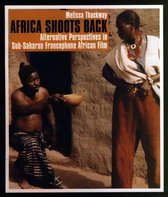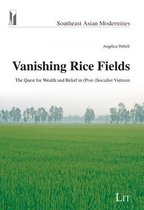Remaking Mutirikwi Landscape, Water and Belonging in Southern Zimbabwe
Afbeeldingen
Sla de afbeeldingen overArtikel vergelijken
Auteur:
Joost Fontein
- Engels
- Hardcover
- 9781847011121
- 18 juni 2015
- 365 pagina's
Samenvatting
Finalist for the African Studies Association 2016 Melville J. Herskovits Award A detailed ethnographic and historical study of the implications of fast-track land reform in Zimbabwe from the perspective of those involvedin land occupations around Lake Mutirikwi, from the colonial period to the present day.
Finalist for the African Studies Association 2016 Melville J. Herskovits Award A detailed ethnographic and historical study of the implications of fast-track land reform in Zimbabwe from the perspective of those involvedin land occupations around Lake Mutirikwi, from the colonial period to the present day. The Mutirikwi river was dammed in the early 1960s to make Zimbabwe's second largest lake. This was a key moment in the Europeanisation of Mutirikwi's landscapes, which had begun with colonial land appropriations in the 1890s. ButAfrican landscapes were not obliterated by the dam. They remained active and affective. At independence in 1980, local clans reasserted ancestral land claims in a wave of squatting around Lake Mutirikwi. They were soon evicted asthe new government asserted control over the remaking of Mutirikwi's landscapes. Amid fast-track land reform in the 2000s, the same people returned again to reclaim the land. Many returned to the graves and ruins of past lives forged in the very substance of the soil, and even incoming war veterans and new farmers appealed to autochthonous knowledge to make safe their resettlements. This book explores those reoccupations and the complex contests overlandscape, water and belonging they provoked. The 2000s may have heralded a long-delayed re-Africanisation of Lake Mutirikwi, but just as African presence had survived the dam, so white presence remains active and affective through Rhodesian-era discourses, place-names and the materialities of ruined farms, contour ridging and old irrigation schemes. Through lenses focused on the political materialities of water and land, this book reveals how the remaking of Mutirikwi's landscapes has always been deeply entangled with changing strategies of colonial and postcolonial statecraft. It highlights how the traces of different pasts intertwine in contemporary politics through the active, enduring yet emergent, forms and substances of landscape. Joost Fontein is Director of the British Institute in Eastern Africa and Lecturer in Social Anthropology at the University of Edinburgh. Published in association with the British Institute in Eastern Africa.
Finalist for the African Studies Association 2016 Melville J. Herskovits Award A detailed ethnographic and historical study of the implications of fast-track land reform in Zimbabwe from the perspective of those involvedin land occupations around Lake Mutirikwi, from the colonial period to the present day. The Mutirikwi river was dammed in the early 1960s to make Zimbabwe's second largest lake. This was a key moment in the Europeanisation of Mutirikwi's landscapes, which had begun with colonial land appropriations in the 1890s. ButAfrican landscapes were not obliterated by the dam. They remained active and affective. At independence in 1980, local clans reasserted ancestral land claims in a wave of squatting around Lake Mutirikwi. They were soon evicted asthe new government asserted control over the remaking of Mutirikwi's landscapes. Amid fast-track land reform in the 2000s, the same people returned again to reclaim the land. Many returned to the graves and ruins of past lives forged in the very substance of the soil, and even incoming war veterans and new farmers appealed to autochthonous knowledge to make safe their resettlements. This book explores those reoccupations and the complex contests overlandscape, water and belonging they provoked. The 2000s may have heralded a long-delayed re-Africanisation of Lake Mutirikwi, but just as African presence had survived the dam, so white presence remains active and affective through Rhodesian-era discourses, place-names and the materialities of ruined farms, contour ridging and old irrigation schemes. Through lenses focused on the political materialities of water and land, this book reveals how the remaking of Mutirikwi's landscapes has always been deeply entangled with changing strategies of colonial and postcolonial statecraft. It highlights how the traces of different pasts intertwine in contemporary politics through the active, enduring yet emergent, forms and substances of landscape. Joost Fontein is Director of the British Institute in Eastern Africa and Lecturer in Social Anthropology at the University of Edinburgh. Published in association with the British Institute in Eastern Africa.
Productspecificaties
Wij vonden geen specificaties voor jouw zoekopdracht '{SEARCH}'.
Inhoud
- Taal
- en
- Bindwijze
- Hardcover
- Oorspronkelijke releasedatum
- 18 juni 2015
- Aantal pagina's
- 365
- Illustraties
- Nee
Betrokkenen
- Hoofdauteur
- Joost Fontein
- Hoofduitgeverij
- James Currey
Overige kenmerken
- Extra groot lettertype
- Nee
- Product breedte
- 156 mm
- Product hoogte
- 34 mm
- Product lengte
- 234 mm
- Studieboek
- Nee
- Verpakking breedte
- 156 mm
- Verpakking hoogte
- 234 mm
- Verpakking lengte
- 234 mm
- Verpakkingsgewicht
- 781 g
EAN
- EAN
- 9781847011121
Je vindt dit artikel in
- Categorieën
- Taal
- Engels
- Boek, ebook of luisterboek?
- Boek
- Beschikbaarheid
- Leverbaar
- Studieboek of algemeen
- Algemene boeken
Kies gewenste uitvoering
Kies je bindwijze
(3)
Prijsinformatie en bestellen
De prijs van dit product is 104 euro en 99 cent.
2 - 3 weken
Verkoop door bol
- Prijs inclusief verzendkosten, verstuurd door bol
- Ophalen bij een bol afhaalpunt mogelijk
- 30 dagen bedenktijd en gratis retourneren
- Dag en nacht klantenservice
Rapporteer dit artikel
Je wilt melding doen van illegale inhoud over dit artikel:
- Ik wil melding doen als klant
- Ik wil melding doen als autoriteit of trusted flagger
- Ik wil melding doen als partner
- Ik wil melding doen als merkhouder
Geen klant, autoriteit, trusted flagger, merkhouder of partner? Gebruik dan onderstaande link om melding te doen.








